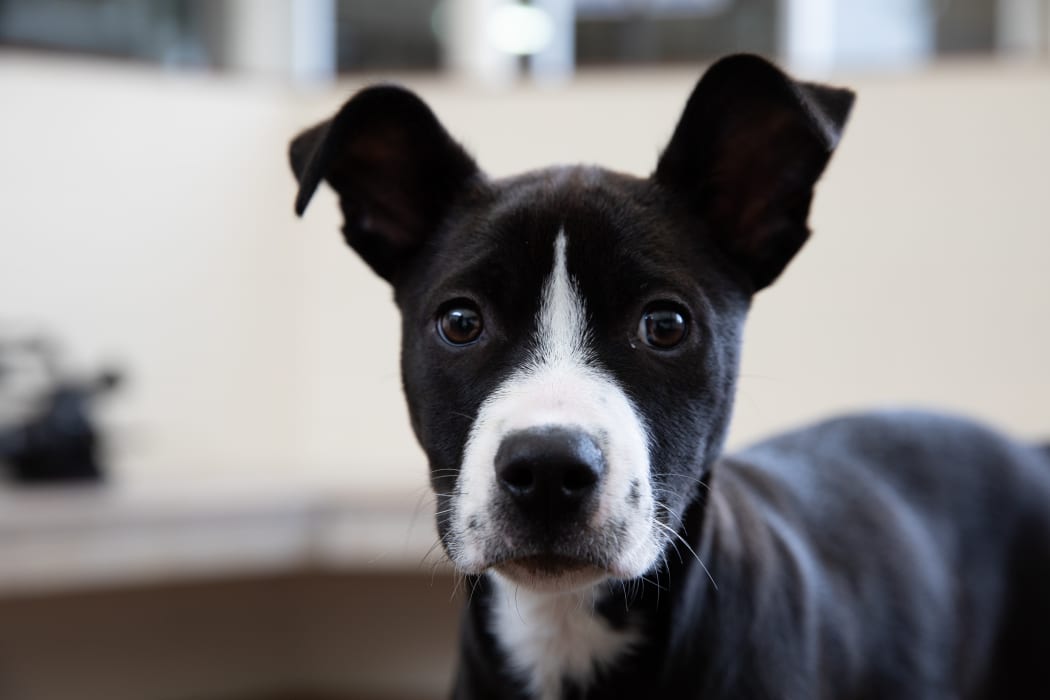A gap in the law is allowing lax controls around puppy farming and dog breeding and new legislation is desperately needed, an industry association says.
Some puppies are sold for thousands of dollars, in what one industry expert says is an under-legislated environment.
Photo: RNZ / Dan Cook
Sky high demand for puppies, both during lockdowns and afterward had been matched by an explosion in the number of backyard breeders producing them, but not all of them were good, Dogs New Zealand director Steven Thompson said.
While dog breeding was a hobby for many of his organisation’s members, there had been an increase in those who were purely in it for the income.
Puppies were frequently sold for between $3000 and $8000 each, he said. But dog breeders did not have to register their activities, which made it hard to keep track of any rogue operators.
“You have two pieces of legislation that look after the welfare of animals – the Animal Welfare Act, and the Dog Control Act, but there is no specific piece of legislation at the moment that deals with the activity of either dog breeders or cat breeders. It does leave a gap.
“There needs to be some regulation in the industry… whenever you’ve got a demand in a market, you’re going to have a supply to meet the demand, it’s basic economics … there are some people that have been attracted by the money.”
Before 2020, about 100 to 120 new kennels were signing up with Dogs NZ each year, but that number had grown quickly to about 200 new applications each year now.
“But we’re only a small part of the entire industry, people register with us when they’re breeding pedigree dogs, and pedigree dogs are only 18 percent of the entire dog population,” he said.
Yesterday SPCA inspectors seized about 20 designer dogs while executing a search warrant at a Christchurch property, and an investigation had been launched into the activities there.
Emergency services had to be called to help because the environment inspectors were entering at the property was found to be “unsafe”.
That follows one of the largest prosecutions in the SPCA’s history, which led to a nine-year ban on keeping dogs for two german shepherd breeders. The mother and daughter had been keeping more than 60 dogs in filthy conditions, with some underfed, without access to water or shelter and with untreated infections.
Tighter laws for domestic animal breeding had already been enacted in many places overseas, and it was inevitable they would be introduced here, too, Thompson said. However he warned there must be careful balances considered.
“You’ve got to be very careful with the legislation, you want not to punish the breeders that are doing the right thing, that are looking after the health and welfare of the dogs involved, because if you become too punitive you drive it underground, and that’s what you don’t want to do.
“We’ve got to be very careful … we make sure it looks after the good breeders and allows them to continue their activities, while it raises the standard of the industry as a whole…. and allows some controls so that you can drive the bad ones out.”
The german shepherd breeders convicted after the SPCA prosecution had been registered with Dogs NZ, and the organisation had ‘fallen down’ in monitoring that kennel, Thompson said. But it had “learned some lessons out of that whole environment.”
He said member’s operations would be tracked, and they could be suspended from the organisation if they did not follow a breeders code of conduct and internal regulations.





















Discussion about this post